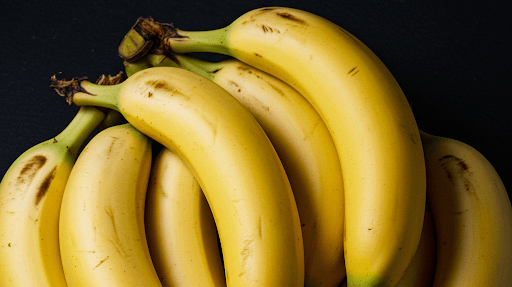Tropic Biosciences’ Breakthrough in Non-Browning and Disease-Resistant Bananas
SUSTAINABILITY


This is an AI generated illustration and does not represent actual product or service.
The banana, one of the world’s most popular fruits, faces significant challenges, including rapid browning, short shelf life, and the devastating impact of fungal diseases like fusarium wilt (TR4). These issues have spurred innovation in the agricultural biotechnology sector, with UK-based Tropic Biosciences leading the charge. Using advanced gene-editing technologies such as CRISPR and its proprietary Gene Editing Induced Gene Silencing (GEiGS) platform, Tropic is developing solutions that promise to transform the banana industry by reducing food waste, extending shelf life, and combating crop-threatening diseases.
The Challenges Facing Bananas
Bananas, particularly the Cavendish variety, dominate global markets due to their taste, texture, and convenience. However, they are highly perishable and prone to browning, which limits their use in prepared fruit products and contributes to food waste. Additionally, bananas are climacteric fruits, meaning they continue to ripen after harvest due to ethylene production. While this ripening process is essential for flavor development, it also shortens their shelf life and complicates transportation.
Another critical issue is the spread of fusarium wilt TR4, a soil-borne fungal disease that has devastated Cavendish banana plantations worldwide. Traditional breeding methods are ineffective because commercial bananas are sterile and reproduce asexually, making it nearly impossible to introduce new traits through crossbreeding. This has left the industry reliant on genetic modification and mutagenesis, which are often inefficient and lack precision.
Tropic Biosciences’ Innovative Solutions
Tropic Biosciences, founded in 2016, is addressing these challenges with a combination of CRISPR gene editing and its proprietary GEiGS technology. The company’s innovations include patent pending non-browning bananas, extended shelf-life bananas, and TR4-resistant bananas, all of which are poised to make a significant impact on the industry.
Non-Browning Bananas
One of Tropic’s most notable breakthroughs is the development of non-browning bananas. Browning in bananas, as in apples and potatoes, is caused by the enzyme polyphenol oxidase (PPO), which catalyzes the oxidation of phenolic compounds when the fruit is exposed to air. This process not only affects the fruit’s appearance but also reduces its marketability and nutritional value.
Using CRISPR, Tropic has successfully knocked out the genes responsible for PPO production in bananas. The result is a banana that retains its taste, texture, and sweetness but resists browning, making it ideal for cut fruit products and prepared salads. This innovation opens up new opportunities for the banana industry, allowing bananas to be included in fresh fruit selections that were previously off-limits due to their rapid browning.
Tropic’s non-browning bananas have already received regulatory approvals in several countries, including the Philippines, Colombia, Honduras, the USA, and Canada. The company has begun distributing seedlings to farmers, marking a significant step toward commercialization.
Extended Shelf-Life Bananas
In addition to non-browning bananas, Tropic is developing bananas with an extended shelf life. By targeting the genes responsible for ethylene production, the company has created bananas that stay greener for longer, delaying the ripening process. This innovation allows bananas to be harvested later and shipped over greater distances without compromising quality.
The extended shelf life reduces the need for excessive packaging and chilled transportation, lowering costs and environmental impact. It also enables bananas to reach new export markets, such as Japan and the Middle East, which were previously difficult to serve due to the fruit’s perishability.
TR4-Resistant Bananas
Fusarium wilt TR4, a soil-borne fungal disease, has devastated Cavendish banana plantations worldwide. Traditional methods of combating TR4, such as crop rotation and chemical treatments, have proven ineffective. Tropic’s GEiGS technology offers a promising solution.
GEiGS combines RNA interference (RNAi) with gene editing to activate the banana plant’s natural defense mechanisms. Unlike traditional gene knockouts, which disable coding genes, GEiGS targets non-coding genes that regulate gene activity. By making small changes to these non-coding genes, Tropic can repurpose them to inhibit genes in the fusarium fungus, effectively turning the banana plant’s own RNAi machinery against the disease.
This approach allows for greater specificity and flexibility, enabling Tropic to target the fungus without disrupting the banana plant’s essential functions. Field trials for TR4-resistant bananas have shown promising results, with clear resistance observed in multiple locations.
The GEiGS Advantage
Tropic’s GEiGS technology represents a significant advancement in gene editing. Unlike traditional CRISPR, which typically involves knocking out or modifying coding genes, GEiGS leverages non-coding genes to achieve precise and nuanced outcomes. This allows Tropic to fine-tune gene expression, reducing activity by specific percentages or targeting specific tissues within the plant.
The technology’s non-GMO nature also simplifies regulatory approval, making it easier to bring innovations to market. GEiGS has applications beyond bananas and has already attracted partnerships with major players in agriculture, including Corteva, British Sugar, and Genus.
A Bright Future for Bananas
Tropic Biosciences’ innovations have the potential to revolutionize the banana industry. By addressing browning, shelf life, and disease resistance, the company is not only improving the quality and marketability of bananas but also reducing food waste and environmental impact. Its GEiGS technology, with applications beyond bananas, is already being leveraged to develop disease-resistant traits in other crops and livestock.
As Tropic prepares to launch its non-browning and extended shelf-life bananas, the company is also expanding its field trials for TR4-resistant bananas. With regulatory approvals in place and partnerships with leading banana producers, Tropic is well-positioned to lead the next wave of agricultural innovation.


